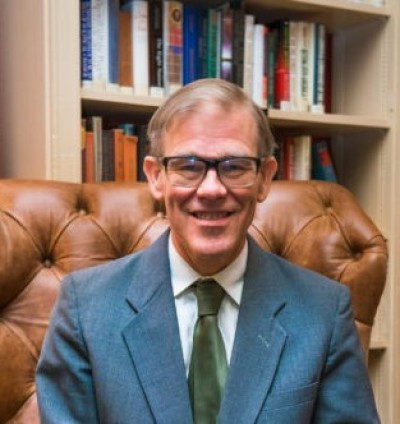An impossible equality of dreams

America fought two fierce conflicts, World War II and the Cold War, to secure freedom and prosperity, and to make possible a world in which people could pursue their own happiness.
But any venue for life requires some framework, and the real framework of American society — belief in God, Judeo-Christian morality, and constitutional liberalism — was tacitly discarded by American elites and much of the popular culture in the 20th century. A new commitment to self-actualization replaced it, at least on the part of the leading institutions of society. A “culture war” rages with that part of the populace which does not accept this.
An earlier article by this writer quoted Christian apologist Douglas Groothuis saying that, “the law is based on some view of reality; all law is an enactment of some moral vision.” The old view of reality held that it consisted of God and his creation, which included man created in the image of God. And the same divine revelation which discloses man in the image of God also discloses that man is male and female, and what their relations and basic social relations among human beings should be."
The new view of reality arguably consists of materialism (only physical reality considered to be objective) and expressive individualism to account for subjective reality. The “personhood theory” referred to by worldview commentator and author Nancy Pearcey in the linked article concerning expressive individualism might be understood as similar to philosopher David Hume’s bundle theory — that the self is a bundle of sensations. Add “desires” to this, and we would seem to have something very similar to personhood theory.
Reformed theologian Carl Trueman has lucidly outlined in his 2020 book The Rise and Triumph of the Modern Self, how this self-defined and always changeable self has become the accepted true self, recognized in law and society as possessing the freedom and equality formerly ascribed to human beings who were held to have a fixed nature. The inconsistency in law and society which necessarily arises from a self-defined and ever changeable self should be obvious.
But the passion behind the drive for liberation will mean that these inconsistencies will have to become glaringly apparent before the irrationality of the self-defined self can be repudiated. Of course the doctrine of moral autonomy behind self-definition can be made to work according to the sensibilities of those in power. But Christians and others committed to living in truth must continually point out the problems, knowing they will be suppressed and ignored as far as our woke institutions are able.
Because the true self is held to be self-defined, a person’s sex, now called a “gender,” is self-defined, and there are at least as many potential genders as there are individuals. But even this does not describe the true situation. Potential genders are not limited to the number of individuals in a society, but could refer to each and every emotional state of each and every individual over the course of their lives.
The great controversy in our day, of course, is the attempt to make this subjective reality an antidiscrimination category. In 2015, as debate over religious freedom and LGBT liberation began to rage in earnest, social conservative philosopher Ryan Anderson explained why it is wrong to make an antidiscrimination category out of the life someone leads:
“Martin Luther King Jr. dreamed that his children would be judged not by the color of their skin, but by the content of their character. A person’s character is expressed in his voluntary actions, and it is reasonable to make judgments about those actions. Race implies nothing about one’s actions. But in practice, sexual orientation and gender identity terms are frequently used in reference to a person’s actions.”
People have equal freedom and dignity because of who they are — specifically human beings — not because of the lives that they lead. Homosexual and transgender identifying people have dignity as human beings, but not as homosexual or transgender identifying persons. To argue that people have freedom and dignity because of the lives they lead would make all crimes legal, and result in chaos and barbarism.
An excellent example of the barbarism and confusion that results from making people’s subjective realities into unassailable truths and demanding justice on that basis was a widely noted panel of leftist feminists who appeared at the Heritage Foundation in early 2019 in connection with the dangers of the proposed Equality Act. One of the panelists, Julia Beck, was a lesbian expelled from Baltimore’s LGTBQ Commission. Along with pointing out such inanities as a biological male identifying as a woman (i.e., a “transgender woman”) raping female prisoners at a women’s prison, or the commission’s head claiming to be lesbian while in fact a biological male, she observed, “how can we be homosexual if sex is fake?”
This is a good question, but homosexuality itself, while necessarily referring to biological reality, nevertheless depends on what is happening in subjective reality, not physical reality. Significantly, the Heritage presentation was attacked by the mainstream media (NBC), which staggeringly and alarmingly, like much of the American establishment, is signed on to irrationality as the only decent and rational way to think.
A recent commentary by Southern Baptist Seminary President Albert Mohler pointed to the instability and unsustainability of the moral revolution in the controversy over old and new “pride” flags for the LGBT movement. A new transgender flag was felt necessary to be expressive of transgenderism rather than the earlier “rainbow” flag, and now black and brown are being considered in view of the current focus on race. Race is indeed immutable, but status as an oppressed category demanding our attention is not.
Mohler points to the use of two words by the moral revolutionaries — “transgressive” and “erase.” To be transgressive, to step over rules and boundaries in the pursuit of self-actualization, is held to be something positive, while denying the propriety of an identity based on such transgression is held to “erase” people’s very existence.
But the very idea that being “transgressive” is a good thing is sinful; it is an attack on God’s sovereignty, and a revolt against reality in the name of self-assertion. Multiple “pride” flags and the ever-changing LGBT initialism show the inherent instability of the pure self-assertion of the moral revolution. Mohler correctly notes the critical use of the word “erase” by identity politics — mere self-assertion is equated with “existence;” to deny someone’s self assertion is to deny their existence.
But in fact the self-defining person is really a human being; his or her existence is not at all denied by denying what they assert about themselves. It is “transgressive” identities which are erasing real identities (most notably, that of man and woman) in common understanding. No one’s existence is denied by denying the objective reality of identities which are rooted in self-will, and which contradict human nature as embodied male or female selves. Rooted as it is in pure self-assertion, the gospel of moral autonomy necessarily tends toward tyranny and violence.
Mohler also notes that according to the doctrine of the moral revolution, society is obliged to recognize new previously unheard of identities as they are claimed against previous understandings, and confess that these new identities were oppressed. Common sense will resist this, but it is the claim of humiliation which gives identity politics its power, and overcoming common sense. Nevertheless, where truth and reality are denied, humiliation is just, and treating untruth as if it were truth will be destructive of life.
Incisively, Mohler observed that:
“Once you start a revolution against creation, a revolution against God’s law, a revolution against the family, and the basic building blocks of society, a revolution against gender [i.e., natural sex], then guess what? You’re never going to have enough flags. You’re never going to have enough colors. You’re never going to have enough patterns. You’re going to be erasing somebody, or denying somebody’s existence, because if you define yourself in that way, well, you’re going to need a flag for yourself, maybe a flag for just about every day.”
Intersectionality, which attempts to make identity politics coherent by overlapping various oppressions, “is an ideology that falls in on itself,” Mohler said. New identities tend to cancel out old ones. Identity politics is in fact “a denial of human dignity and the fact that our primary identity” is as “creatures of a holy God who made us in his image, and made us male or female.” For Christians, our identity “eternally is in Christ.” If we “surrender that high ground, you are surrendering into absolute chaos.”
The attempt to accommodate moral autonomy in law dissolves law. The older idea of “liberty in law” assumed human nature, and it is that nature that identity ideology denies. What replaces human nature is a cry of oppression, in which whoever can scream the loudest prevails. Whatever standard stands in the way of the hopes and dreams of some group is held to be oppressive.
Although the sexual revolution is destroying sex, and offers no prospect of permanent norms (even norms that are not compatible with Christianity), it is not to be expected that it will run out of energy, and some kind of normalcy based on reality will follow. Common sense would suggest that a culture based on transgression and deviance cannot survive on its own. But rapidly developing technology may also mean that there will be a continual rapid change in the conditions of life.
It may be that the revolution can continue for as long as anger holds out, and the perennial rehearsal of past grievances will ensure that it does hold out. Faithful Christians can only pray, follow a biblically informed conscience, and use prudence in dealing with this difficult situation for the long term, knowing that God is Lord of all things, and however the world develops in our lifetimes, or many years following, His will, revealed in Scripture, will prevail in the end.
Originally published at Juicy Ecumenism.



























